The long journey home
Last autumn I traveled to Kharkiv with Svitlana, a remarkable young woman who’d fled to the UK at the beginning of the full scale war. This is her journey home, in October 2022
Svitlana Prystupa could not resist a little dance, twirling in a circle as she stepped off the train at Kharkiv's main railway station, tucking in her scarf against the sudden chill of dawn. "I'm so happy to be home!"
It was six months since Svitlana, a young English teacher, had fled Ukraine's second city of Kharkiv to live as a refugee in London, as Russian artillery and airstrikes pounded her home city relentlessly, leaving hundreds of civilians dead. People were killed as they waited in line for bread, as they emerged from shelters to get water, as they tried to sleep in their beds.
Kharkiv is still hit by Russian missiles pretty much every day - although after the success of last autumn’s counter offensive, the whole of Kharkiv region is back in Ukrainian hands. Svitlana had decided to make the journey back, determined to see friends and relatives, collect some belongings, and see what had happened to her home. It was a long journey on many trains, through the night from Warsaw to Kyiv and then another night to reach Kharkiv itself. A brave decision - and a huge emotional challenge, returning to a city which was so battered by war, a place where everything was familiar, but horribly unfamiliar at the same time. Driving through the near deserted city centre in a friend's car, almost every window was boarded up, while the only sign of activity were words scribbled in pen on the outside of a few closed-looking shops: 'We are Working'. We passed one of the new bomb shelter slash bus shelters, hurridly being put up around the city to protect people after shell attacks on bus queues. Huge patriotic signs loomed above: Kharkiv, Hero City. Thank You to our Defenders. We remember: We will win.
Much of Kharkiv has been badly damaged
"These places are part of our lives" said Svitlana, as we walked down a street lined with shattered buildings, the rubble of their insides spilling over onto the pavement, window frames swaying at crazy angles, nothing but blackness behind. "When you see this you think of your own life here, and your own past - like 'oh, I met my school friends here. Oh, I had a nice cup of coffee here, I had a lovely date here. And now it is all just ruins and it smells of death and destruction and fear."
At the top of Freedom Square, the largest square in Europe, a spent missile is jammed into the cobbles, a monument to the many which fell here. The vast expanse is almost empty of life, although a few young people wander up to take selfies by the missile, in front of the facade of Karkhiv's city hall, not a single window left, the yellow stone pockmarked with bullet holes, the Ukrainian flag still flying defiantly overhead. Yet go closer, and there is a construction crane removing the rubble, clearing ground around a massive shell crater, ready to rebuild it again. Down the road there is a bomb damaged neo classical courtyard, which became the scene of a viral video after a musician played a haunting piano melody in the midst of the ruins. Now, there was a bulldozer hard at work, clouds of dust rising as it scooped up mounds of debris.
The Palace of Labour
"It is all very surreal and strange, because the city on the one hand, lives and fights and its heart beats, because there are some shops and some restaurants still there", Svitlana said as we walked on. "The transport is running. So the city is breathing. But on the other hand, there are usually a lot of people here and now hardly anyone. To see this huge megapolis, so empty is really strange."
One of the restaurants which has improbably stayed open was Trattoria, a favourite of Svitlana and her sisters. Inside, staff were busying themselves as normal, the place not exactly full, but still a buzz of warm hospitality. At one table, a soldier was sitting by himself with a bread and a plate of pasta, and Svitlana asked if she could pay for his meal. There was still an early curfew, and walking home after a 6pm dinner the city was already plunged into the inky darkness of total blackout, a creepy, strange darkness where you could barely see where to walk, just the odd traffic light blinking away in the distance.
Later that night, in the flat, we found ourselves scrambling into the corridor as Russian rockets again targeted the city - the border is just 20 miles away, so close that air raid sirens are followed just a few seconds later by the sound of explosions.
Freedom Square
In the dark corridor of the flat, we counted three explosions, then a fourth. Loud, but not near enough to shake the walls of the building. Svitlana scrolled through the messages on her phone: "I know that people who live here are used to it. And I'm very sorry that they need to hear it all the time". The interrupted nights punctuated by the wail of air raid sirens, then the dilemma of whether to try and sleep through it or trudge with blankets, bleary eyed, to the safer cover of a basement or bathroom. Millions of people live like this. Every single night. It is both exhausting and relentless.
And after the all clear, life goes on. There are takeaway carts at a spot by the river, offering flat whites and espresso for the few people still going out for a walk, and a scattering of coffee shops are open for business. Back in the city centre, we spot a rare crowd of press with cameras - it turns out the former Ukrainian president, Petro Poroshenko, has turned up for a photo call. He comes over to say hello. Across the street there is another crowd, older people and some women with children, who are waiting for a delivery of humanitarian aid. Snapshots of life, in the surreal autumn of 2022.
The road into the city
There was one last trip to Trattoria restaurant for Svitlana before she headed out of Ukraine again, the likelihood of a freezing winter with limited heating, electricity and water supplies too much of a dangerous prospect to stay. She carried a bulging suitcase filled with some of the belongings she couldn't leave behind - plus a bag of her favourite food - takeaway boxes of lasagne and grilled vegetables and curd cheese pancakes for the train ride back to Kyiv. "I am so worried about people who are still here, my close ones, but I think they're really made of steel, because I would be so scared every minute", she says. "I hope that soon, they won't have to deal with so much stress - and I'm really looking forward to victory, so I can finally go back home. I missed this place. I love it so much."
POSTSCRIPT…
Kharkiv has changed a lot in the year since my first journey there with Svitlana. More people have returned, missing their homes too much to stay away, the streets are busier, there’s even the occasional traffic jam. But the daily attacks by Russian missiles are all too frequent, all too lethal still. Like all of Ukraine, Kharkiv is courageously working for victory, so it can live a peaceful life once again.

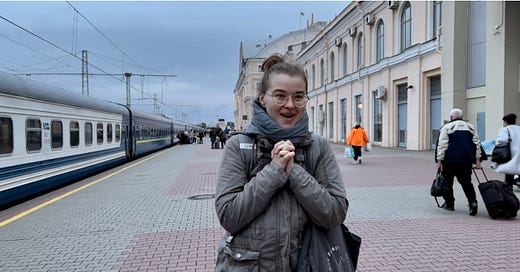



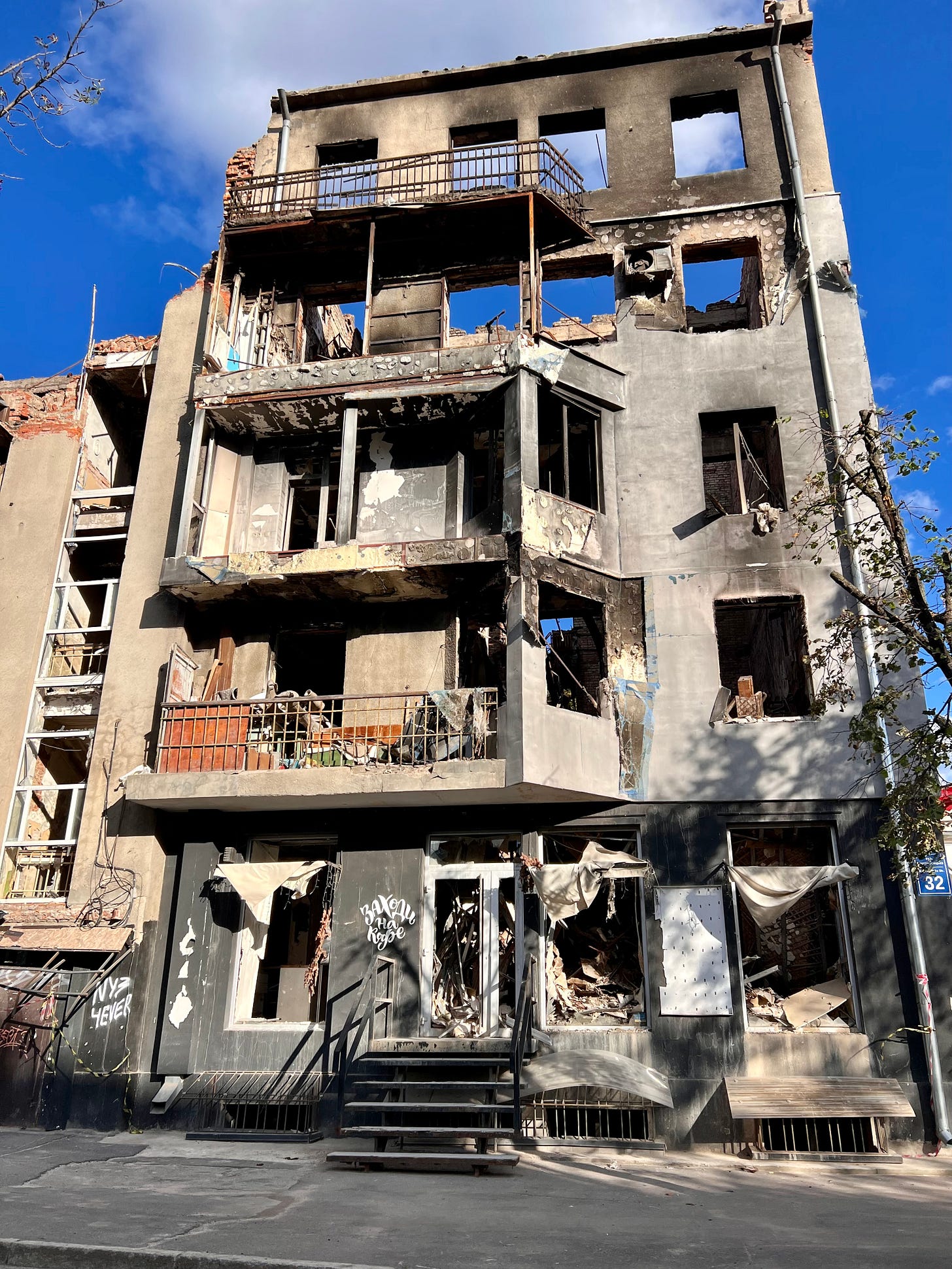
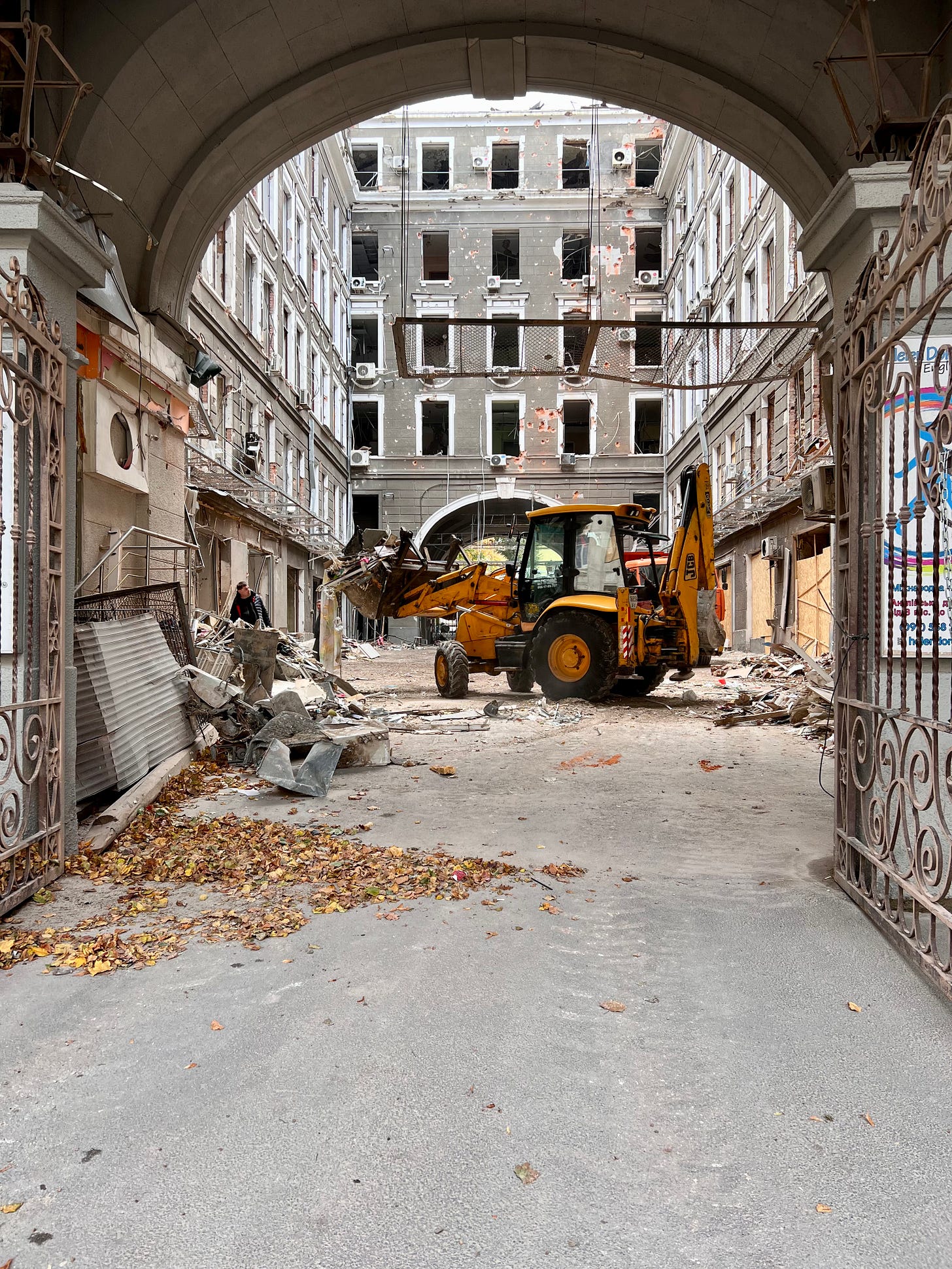
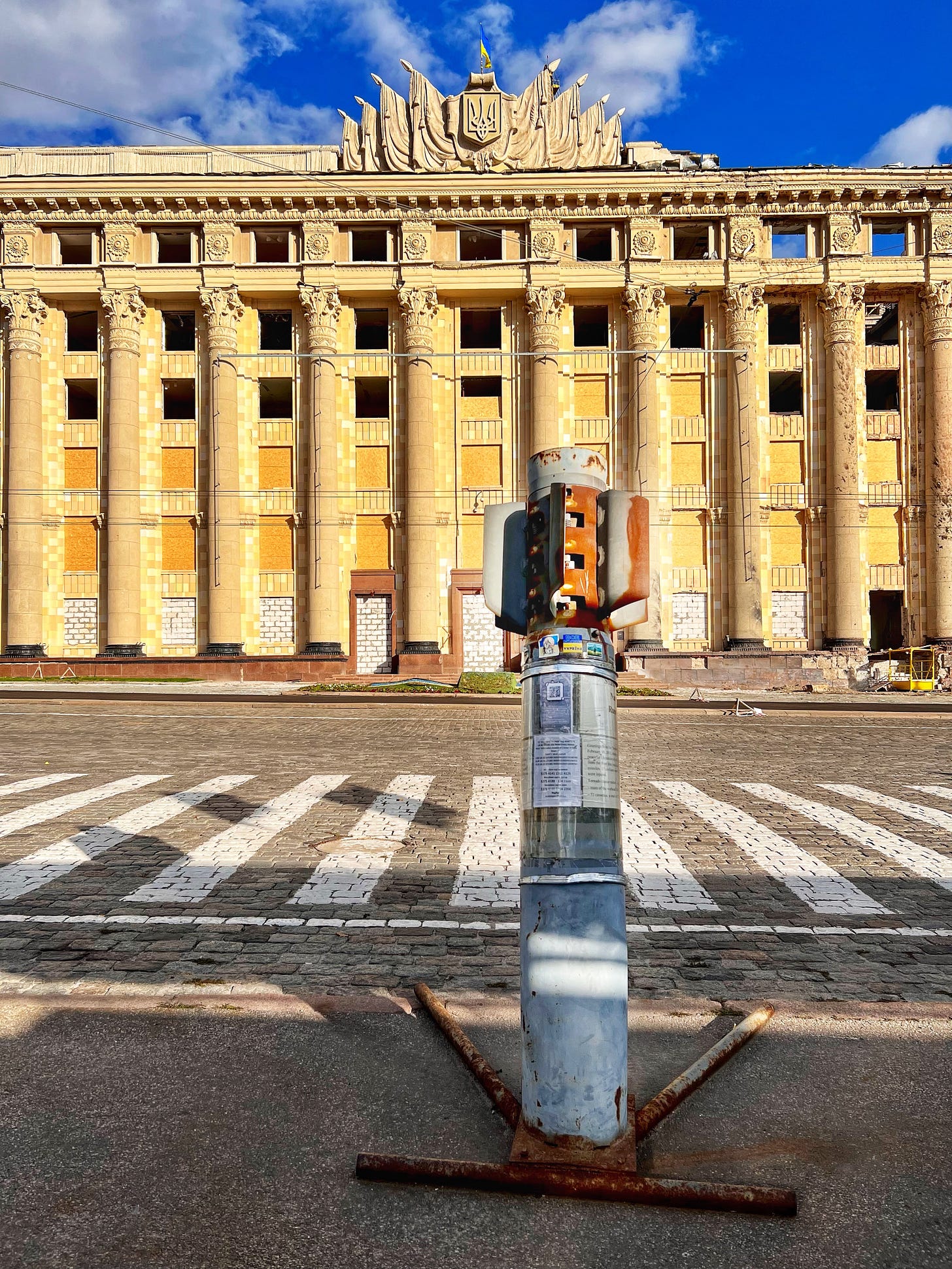
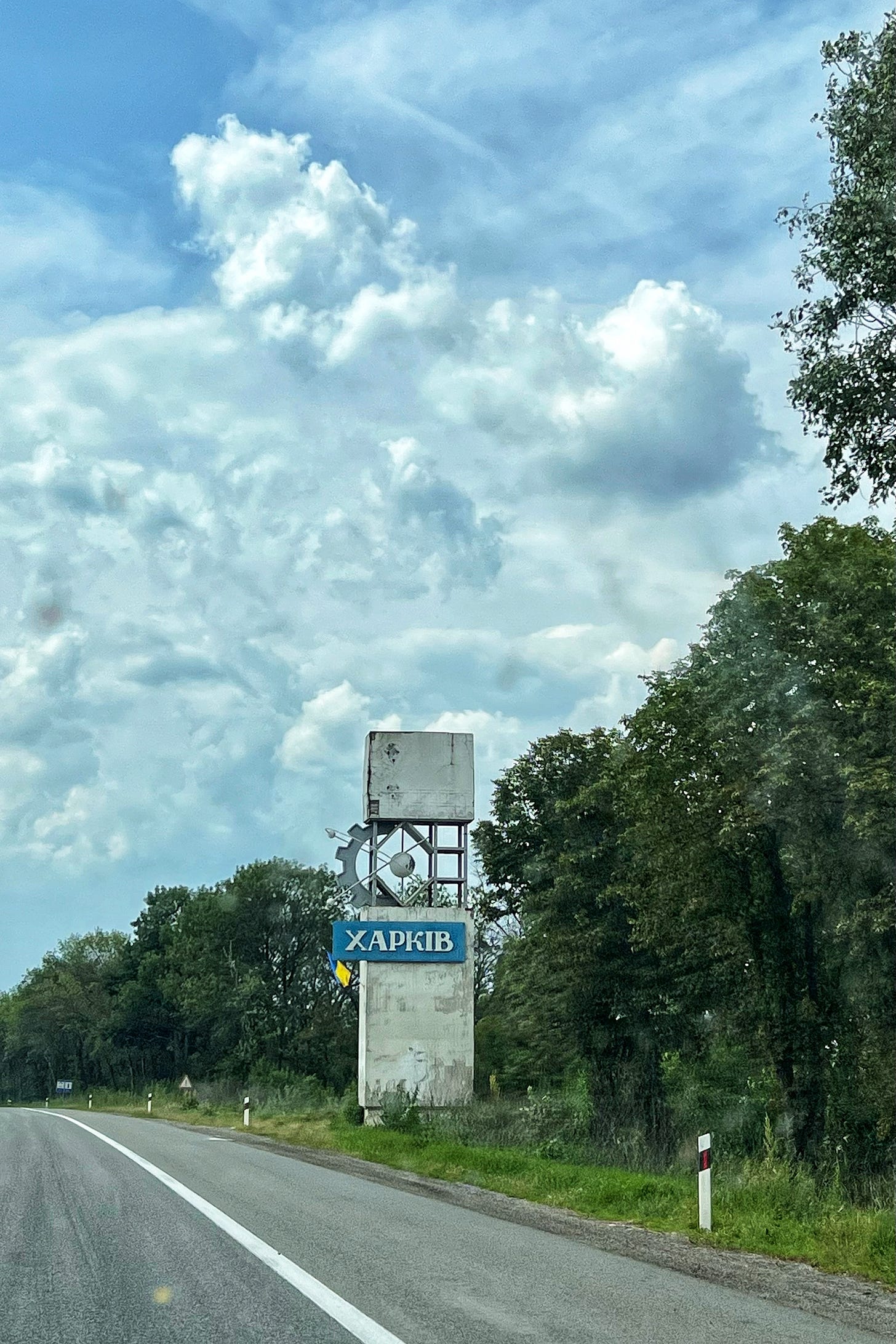
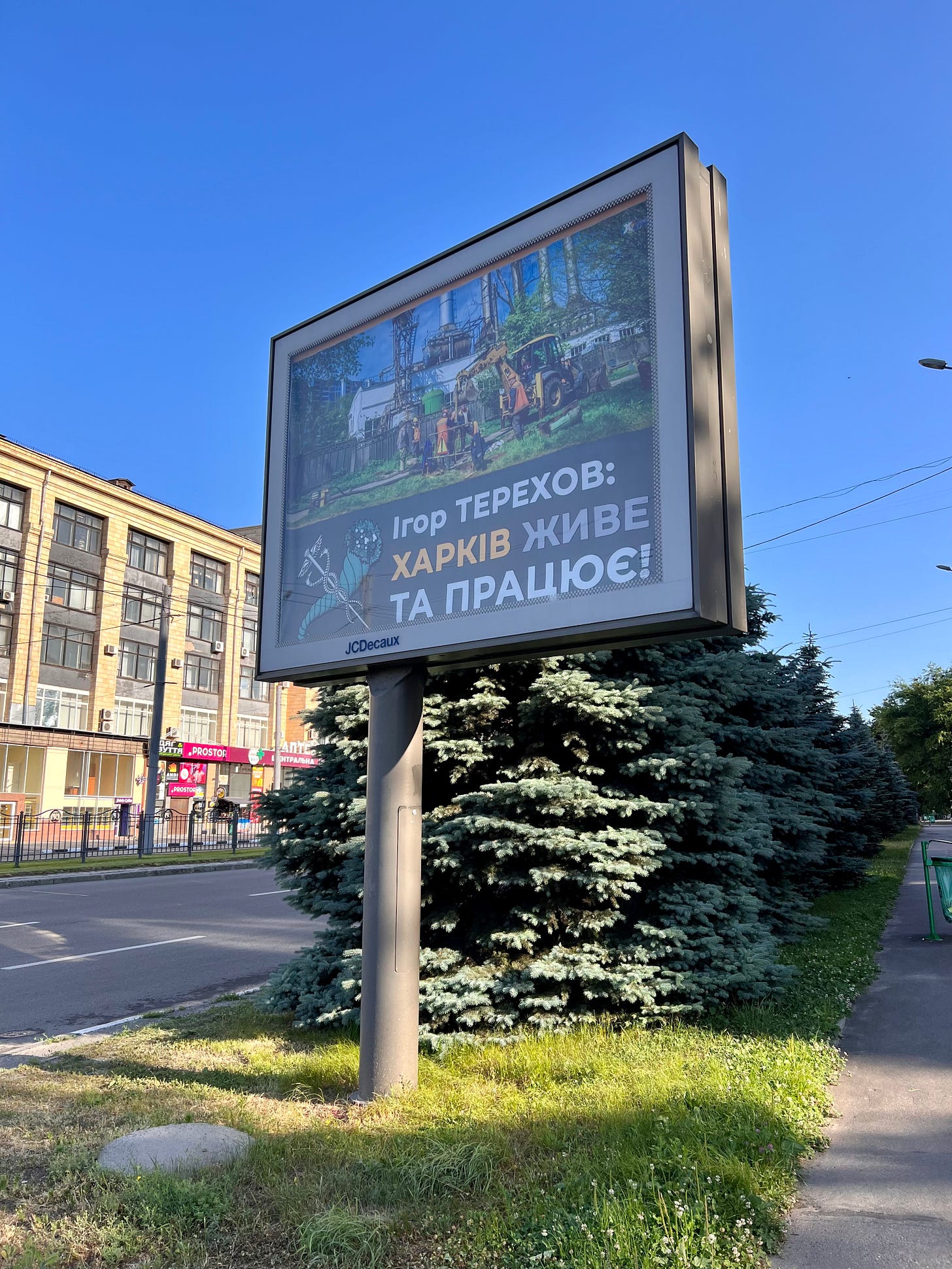
Great piece.